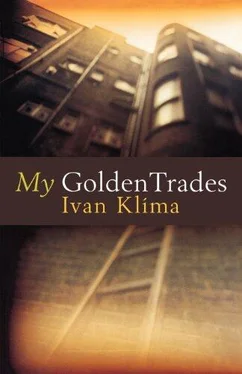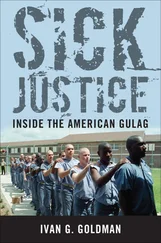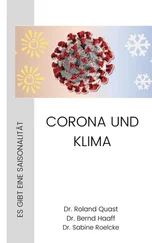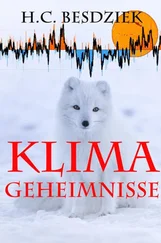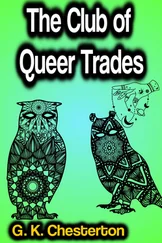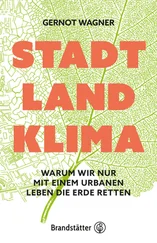Ivan Klima - My Golden Trades
Здесь есть возможность читать онлайн «Ivan Klima - My Golden Trades» весь текст электронной книги совершенно бесплатно (целиком полную версию без сокращений). В некоторых случаях можно слушать аудио, скачать через торрент в формате fb2 и присутствует краткое содержание. Год выпуска: 1998, Издательство: Granta UK, Жанр: Современная проза, на английском языке. Описание произведения, (предисловие) а так же отзывы посетителей доступны на портале библиотеки ЛибКат.
- Название:My Golden Trades
- Автор:
- Издательство:Granta UK
- Жанр:
- Год:1998
- ISBN:нет данных
- Рейтинг книги:4 / 5. Голосов: 1
-
Избранное:Добавить в избранное
- Отзывы:
-
Ваша оценка:
- 80
- 1
- 2
- 3
- 4
- 5
My Golden Trades: краткое содержание, описание и аннотация
Предлагаем к чтению аннотацию, описание, краткое содержание или предисловие (зависит от того, что написал сам автор книги «My Golden Trades»). Если вы не нашли необходимую информацию о книге — напишите в комментариях, мы постараемся отыскать её.
My Golden Trades — читать онлайн бесплатно полную книгу (весь текст) целиком
Ниже представлен текст книги, разбитый по страницам. Система сохранения места последней прочитанной страницы, позволяет с удобством читать онлайн бесплатно книгу «My Golden Trades», без необходимости каждый раз заново искать на чём Вы остановились. Поставьте закладку, и сможете в любой момент перейти на страницу, на которой закончили чтение.
Интервал:
Закладка:
'Well, are you going to tell me?' She said, sitting down opposite me. 'Would it bother you if I smoked?'
'You're the one who's at home.'
'That'll be the day,' she said. 'I'm always surprised at anyone who can smile like that.'
'But you don't do yourself any good by looking glum.'
'Then why do most people look glum?' She stood up and began making the coffee.
'You didn't answer my question.'
'Maybe they don't like being in this world.'
'And do you?'
'Well, once you're here
She handed me the coffee. It was hot, but I swallowed it as quickly as I could to avoid this conversation.
'I would have said the same thing myself once, but since my first husband died, it's become harder and harder.'
'Did he die recently?'
'No, it was six years ago. But it was — awful.' She looked at me. Her eyes had the colour the sky above the city sometimes has. When I looked into them more closely, I realized that they shifted slightly back and forth, as though she couldn't keep them steady. 'He was dying for an awfully long time. It was Parkinson's Disease. They had a programme about it on TV not too long ago. Did you see it?'
'I don't have a television.'
'You don't have a television?' She was shocked at my poverty. How could someone who didn't even have a television smile?
I said, 'I don't want one. I've got a lot of books at home, and I'd rather read.'
'You're right about that. It does eat up your time. But what's a body to do all evening?' She finished her cigarette, pulled another out of the packet, then put it back. She had slender, pretty hands, but her fingers trembled slightly.
'Did you remarry?'
'Of course,' she said. 'And I'm not smiling any more.' She tried to smile. 'This certainly can't be your profession.'
'Why don't you think so?'
'If you did this all the time, you wouldn't smile.'
I said nothing.
'Also, you wouldn't be wearing shoes like that,' she said, pointing at my moccasins. 'You'd have tennis shoes.'
'Well,' I admitted, somewhat taken aback by this feminine logic, 'I have done other things in my life.'
'Yes, and so have I. And do you enjoy this work?'
'Why not? It's OK for a while.' I drank the coffee and stood up to go.
'Next time you come, stop by,' she suggested. 'Too bad you can't bring me something.'
'What would you like?'
She shrugged her shoulders. A body's always waiting for something. You know, some good news. Even though you know by now there's no point. I found that out when Karel died.' She took my coffee cup and went to rinse it out. She didn't offer me her hand to shake, but as she walked by me, she brushed me lightly with her hip.
There were three name-plates outside her door: Anna, Jiřina and Natasha something or other. The Russian name seemed to suit her best.
Outside the wooden caravan, the four workers were sitting in the sun, stripped to the waist and drinking beer. They seemed at least as content with their fate as I was. I walked across the gaping ditch they had dug on a tiny wooden bridge. My working day was over.
At home, I found the intersection of ninety-one east latitude and fifty-six north longitude. It was close to
Krasnojara, but there wasn't a trace of Arobidzhan, nor did it seem likely that there would be any Northern Lights. Summonses, warrants, sentences, perhaps. And snow. The harder the times, the more snow. You fall into a snowdrift and it's the last they hear of you.
Two
THE MAINFRAME COMPUTER in Strašnice is operating again. The Strašnice computer is located in the basement of a tall building belonging to an import-export company. I brought them three bags of blank tape and I'm supposed to pick up tapes with data for delivery. In an enormous subterranean vault, where the air-conditioning hums and smoking is strictly forbidden, the computer screens glow and men and women in white lab coats hurry to and fro. At one of the terminals I recognize the tall, gaunt figure of Mr Bauer. He doesn't see me; his dreamy eyes are fixed on the screen where numbers are marching up and down, aligning themselves into columns. Bauer is collating data on the atmospheric pollution above the Czech mountain ranges. I look over his shoulder. Aerosols and sulphur dioxide are recorded in micrograms; lead, cadmium, copper and zinc are in nanograms — but beyond that I can't make sense of the numbers.
The tapes are waiting for me on the small table beside the entrance. The top reel has a piece of white tape stuck to it with Šumava written across it with a ball-point pen. I stuff the destruction of the Šumava forest into my bag. Through the windows of the glass hallway I see that it's
begun raining heavily. I sit down in a soft chair and watch the traffic in the hall. At a small table next to me are two Arabs, gesticulating violently and talking to each other in loud voices, certain that no one can understand them.
During the war, and then in the 1950s, it was good news when we got a letter from father or the uncles. It meant they were still alive somewhere in the camps or in prison, and that there was still hope we'd meet again. Of course in the end, they killed both my uncles.
I also considered it good news when my wife, whom I loved, sent a message that she was looking forward to seeing me. Genuine good news always relates to encounters that take place in love or in freedom — and best of all, in both conditions: a loving encounter in a state of freedom. The best news of all told us about a free encounter with God's love, which is why I am wary of giving unconditional credence to it.
I delivered rhy first message when I was still a student. It was pouring with rain outside like this too, but it must have been sometime in early spring, because a couple of days before that they had come to arrest my father. Early in the morning someone rang the doorbell. At that time, every ring of the doorbell made my mother nervous, so I went to answer it. It wasn't them, however, but one of my former classmates from high school. I can still see him standing there, drenched, inadequately dressed in a worn anorak, his ginger hair wet and stringy, his face unshaven, his eyes hollow and red from smoke or lack of sleep. Before I'd had a chance to invite him in, he pushed his way into the flat and closed the door behind him.
'What's up?' I wanted to know.
He assured me I had nothing to be afraid of; he'd made
sure no one was following him.
'Why should anyone be following you?'
He explained that they were after him, but he'd managed to lose them.
I wanted to know what they were after him for.
It was better I didn't know, he said.
Very well, but what did he want of me?
I had to hide him. At least until tomorrow. And to deliver one message.
'Me? Why me?'
'Who else have I got to turn to?' he asked. 'They won't look for me here, you have a national hero in your family. And I know you won't turn me in, because you've been in prison yourself.'
'That was during the war.' I felt myself becoming afraid.
'Makes no difference,' he assured me. 'A prisoner won't betray a fellow.'
'They were here a week ago and took my father away.' I was convinced they'd made a mistake, but I didn't say so out loud.
This made him uneasy. 'Is your place being watched?'
'No. At least I don't think so.' It had never occurred to me that we might still be under surveillance. After all, they'd searched our flat so thoroughly. And the rest of us? Surely they had nothing to suspect us of.
My mother appeared and asked why I didn't invite my friend in.
Then we sat in the living-room, drinking tea and pretending to reminisce about things we'd done together. The second my mother left the room he asked me for a piece of paper and an envelope and hastily scribbled something down. He put the paper into an envelope and
Читать дальшеИнтервал:
Закладка:
Похожие книги на «My Golden Trades»
Представляем Вашему вниманию похожие книги на «My Golden Trades» списком для выбора. Мы отобрали схожую по названию и смыслу литературу в надежде предоставить читателям больше вариантов отыскать новые, интересные, ещё непрочитанные произведения.
Обсуждение, отзывы о книге «My Golden Trades» и просто собственные мнения читателей. Оставьте ваши комментарии, напишите, что Вы думаете о произведении, его смысле или главных героях. Укажите что конкретно понравилось, а что нет, и почему Вы так считаете.
